These Are the Foods With the Most Pesticides
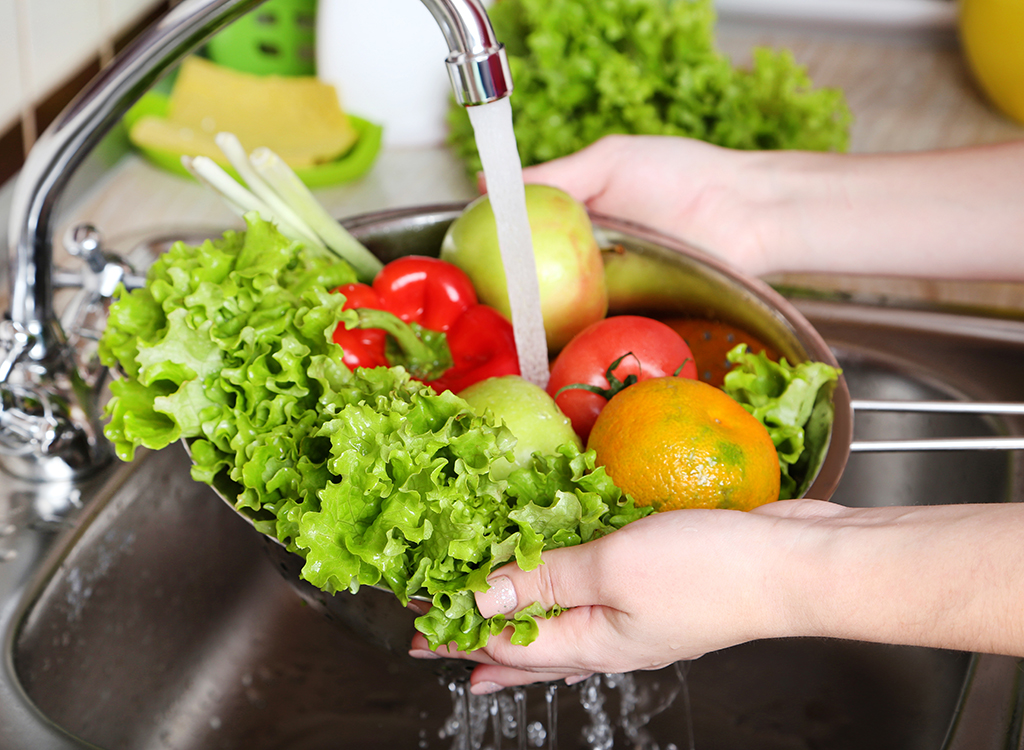
Every year, the Environmental Working Group (EWG), a nonprofit activist group dedicated to public health, releases its Shoppers’ Guide to Pesticides in Produce—and this year’s report is finally out. To help consumers make more informed decisions about their diets, EWG researchers analyzed data from the U.S. Department of Agriculture (USDA) to identify which fruits and vegetables are most and least contaminated with pesticide residues. (If the Dirty Dozen sounds familiar, you can thank the EWG.)
“It’s important to note that a variety of fruits and vegetables is important for a healthy diet, whether they are conventional or organic,” Carla Burns, a research analyst at EWG and co-author of the Shopper’s Guide to Pesticides in Produce, tells us. “Reducing your overall exposure to pesticides may also be beneficial to health. Several epidemiological studies have shown that switching to an organic diet can reduce the levels of pesticides measured in human urine samples, and new research finds that organic diets reduce the risk of cancer in the population.”
After washing conventionally-grown produce samples under water and peeling them, the USDA pinpointed a whopping 225 different pesticides and pesticide breakdown products present, and the EWG found that nearly 70 percent of non-organic produce contain pesticide residues. Find out which top 12 fruits and veggies made this year’s Dirty Dozen. You’ll want to shop the organic versions of these foods after reading this!
Strawberries
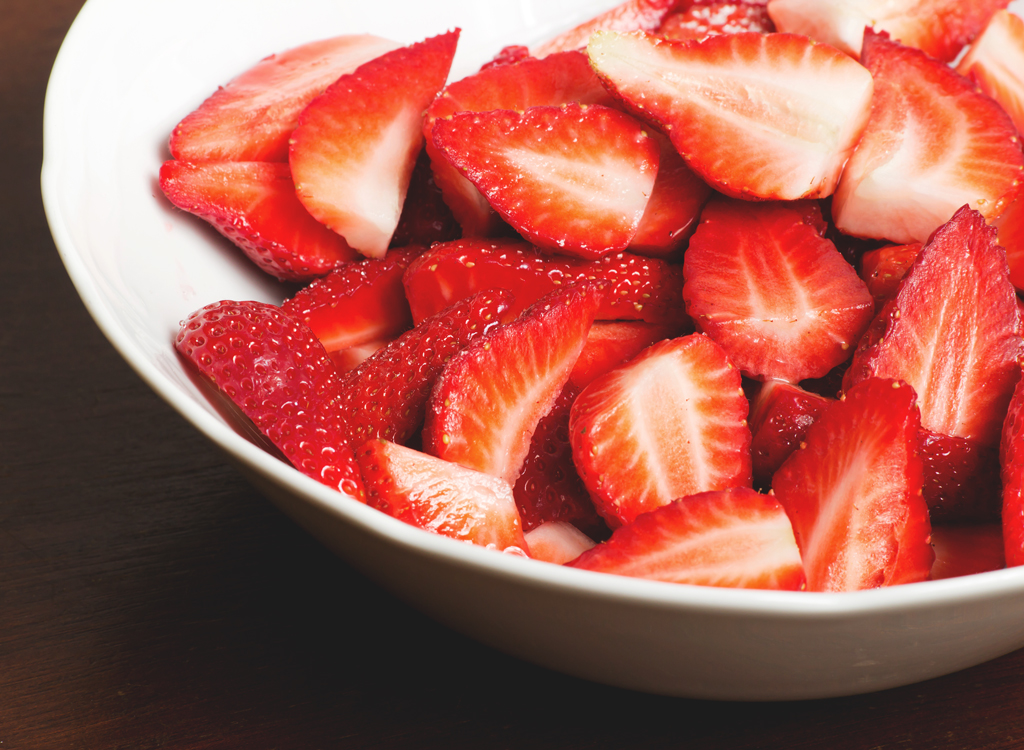
Your go-to post-dinner snack just happens to be the prime host for potentially toxic insecticides. The 2019 report shows that over 90 percent of strawberry samples tested positive for residues of two or more pesticides. Head to Whole Foods to stock up on the organic version of this vitamin C-rich fruit.
Spinach
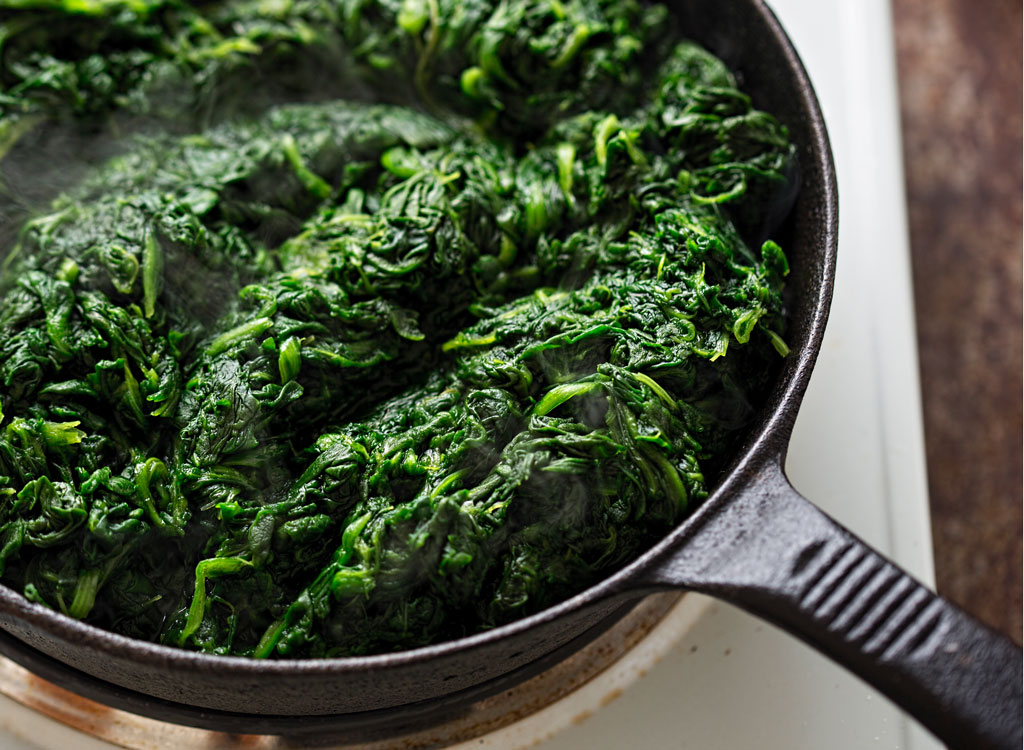
Elevate your healthy eating habits by switching to organic spinach: 76 percent of spinach samples tested positive for permethrin, a neurotoxic pesticide that’s banned in Europe. Plus, DDT—a chemical used in WWII to control malaria, typhus, body lice, and bubonic plague that was adopted as a pesticide—has been banned since 1972, yet its residues and breakdown products were present on 40 percent of spinach samples because DDT remains in farm soil.
Kale
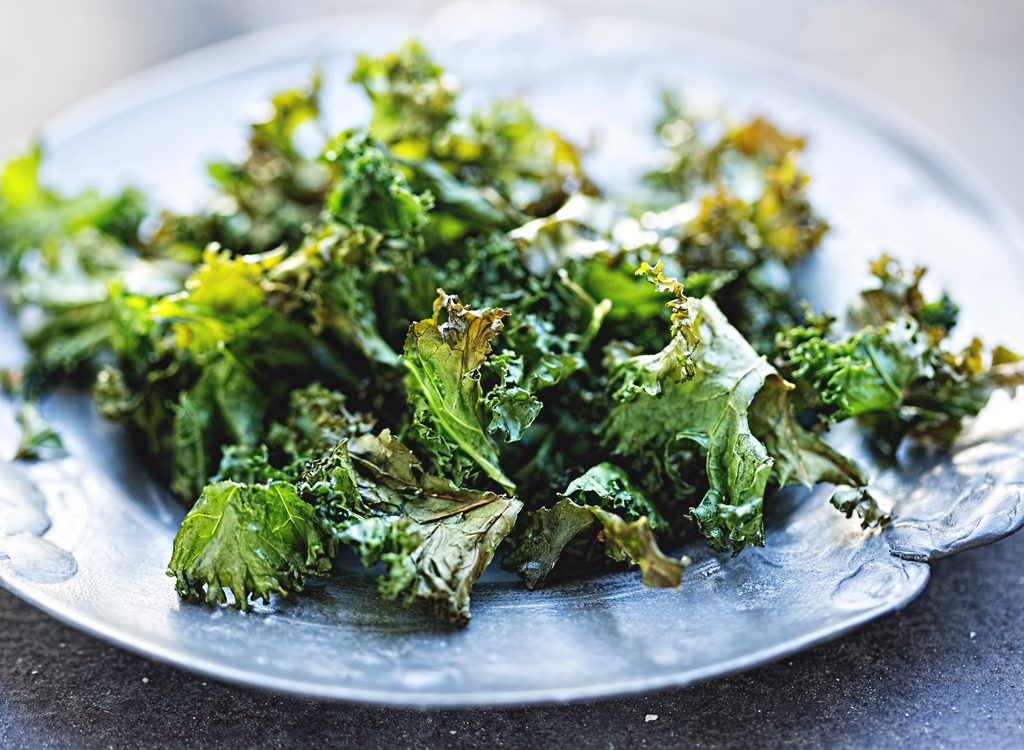
While the 2019 list doesn’t differ much from last year’s, there is a new and popular addition that cracks the top three: kale. “We were surprised kale had so many pesticides on it, but the test results were unequivocal,” EWG Toxicologist Alexis Temkin, PhD, stated in a press release. “Fruits and vegetables are an important part of everyone’s diet, and when it comes to some conventionally grown produce items, such as kale, choosing organic may be a better option.” It’s been a decade since the USDA tested kale, which usurped the eighth spot for most pesticide-laden produce back in 2009. What’s more, a staggering 60 percent of kale samples tested positive for Dacthal, or DCPA, which is classified as a possible human carcinogen.
Nectarines
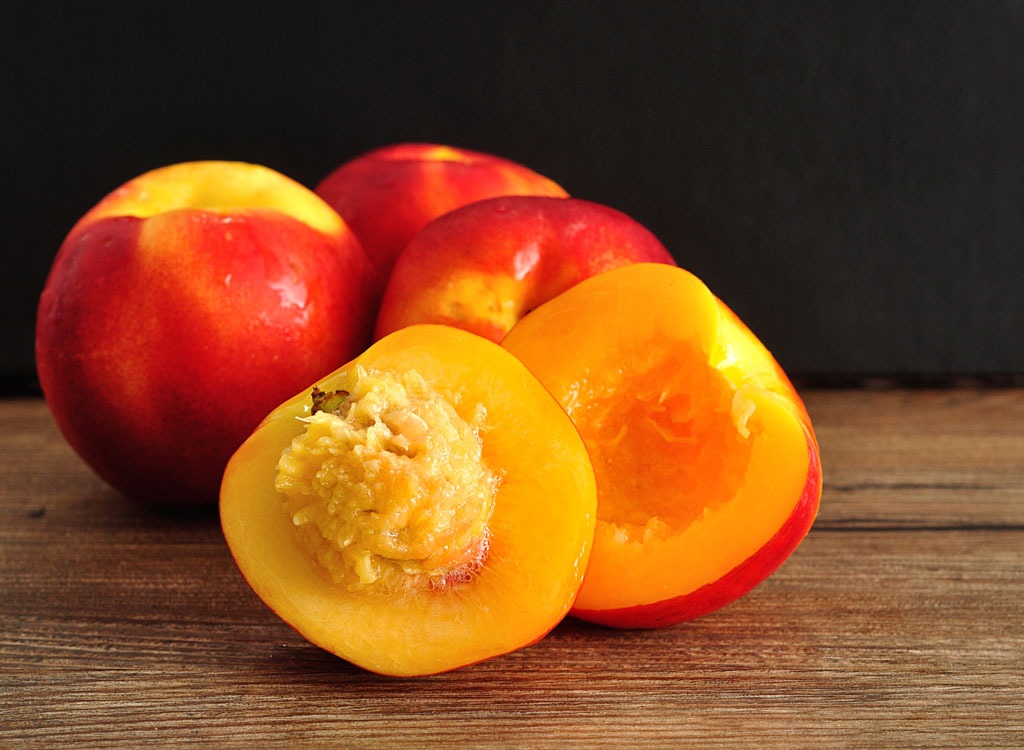
More than 90 percent of nectarine samples tested positive for residues of two or more pesticides.
Apples
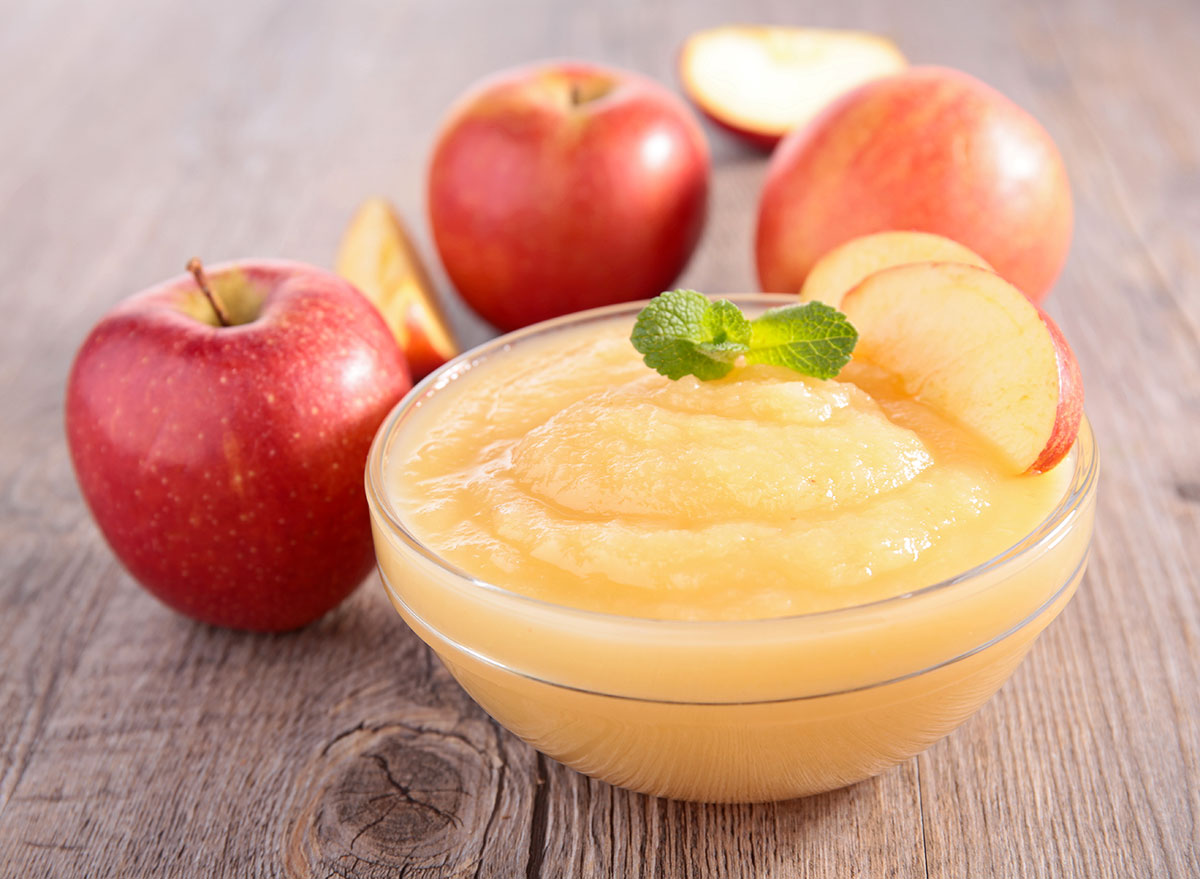
Apples, especially the Pink Lady variety, are brimming with antioxidants. However, over 90 percent of apple samples tested positive for residues of two or more pesticides.
Grapes
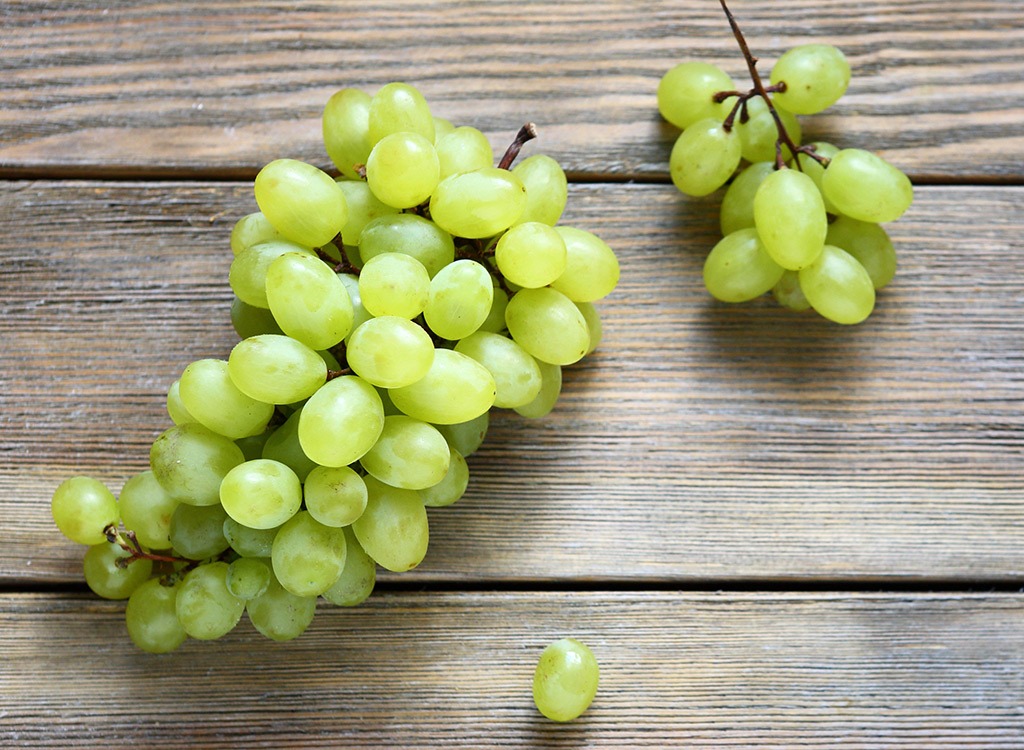
Next time you throw this juicy fruit into the freezer for a refreshing snack, make sure it’s of the organic variety. Because grapes made the Dirty Dozen list again, you may want to make sure you’re shopping for organic wines, too.
Peaches
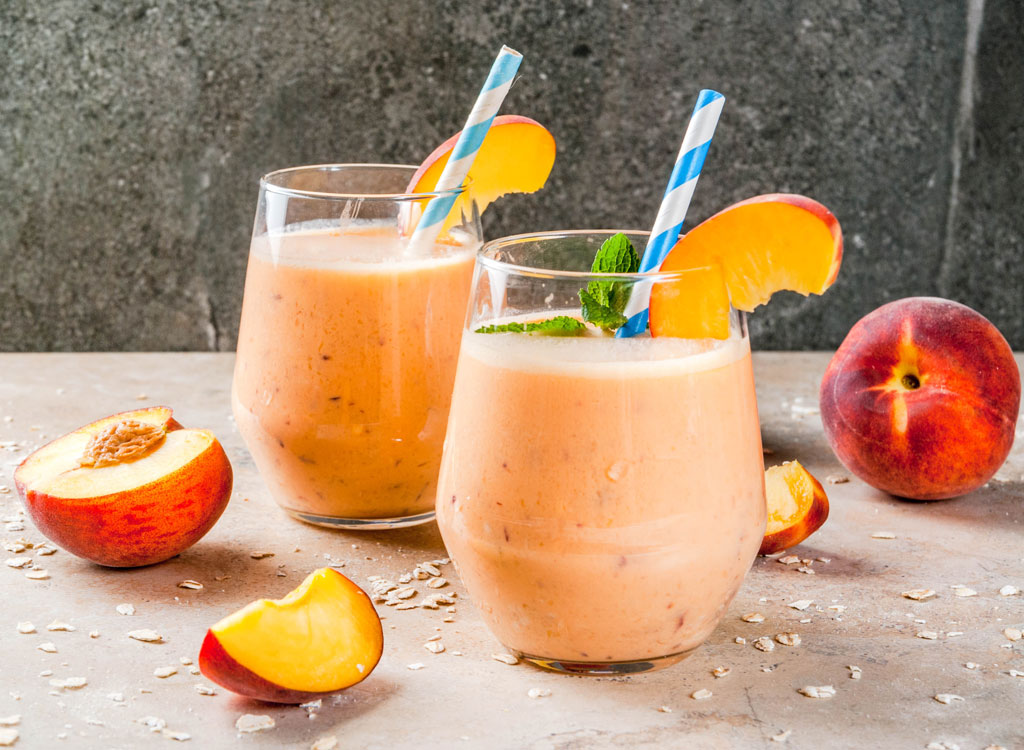
Bite into a peach, and your body will benefit from digestion-aiding fiber and collagen-building vitamin C. But the conventionally-grown cobbler staple can also expose you to unwanted pesticides.
Cherries

If you’re snacking on melatonin-rich cherries to fight insomnia, know that over 90 percent of samples showed pesticide residues. Forget losing sleep over that and go for organic.
Pears
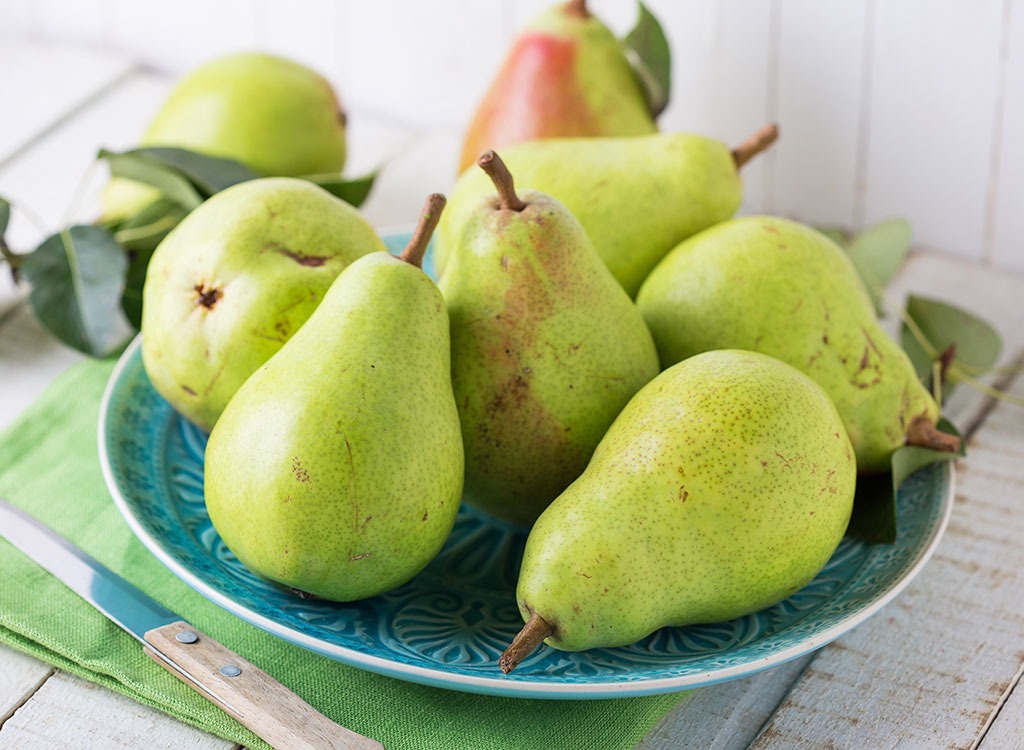
Whether you’re throwing some pear slices into a smoothie or artfully arranging them atop a homemade pie, this fruit cracked the Dirty Dozen’s top 10, so you’re better off buying them organic.
Tomatoes
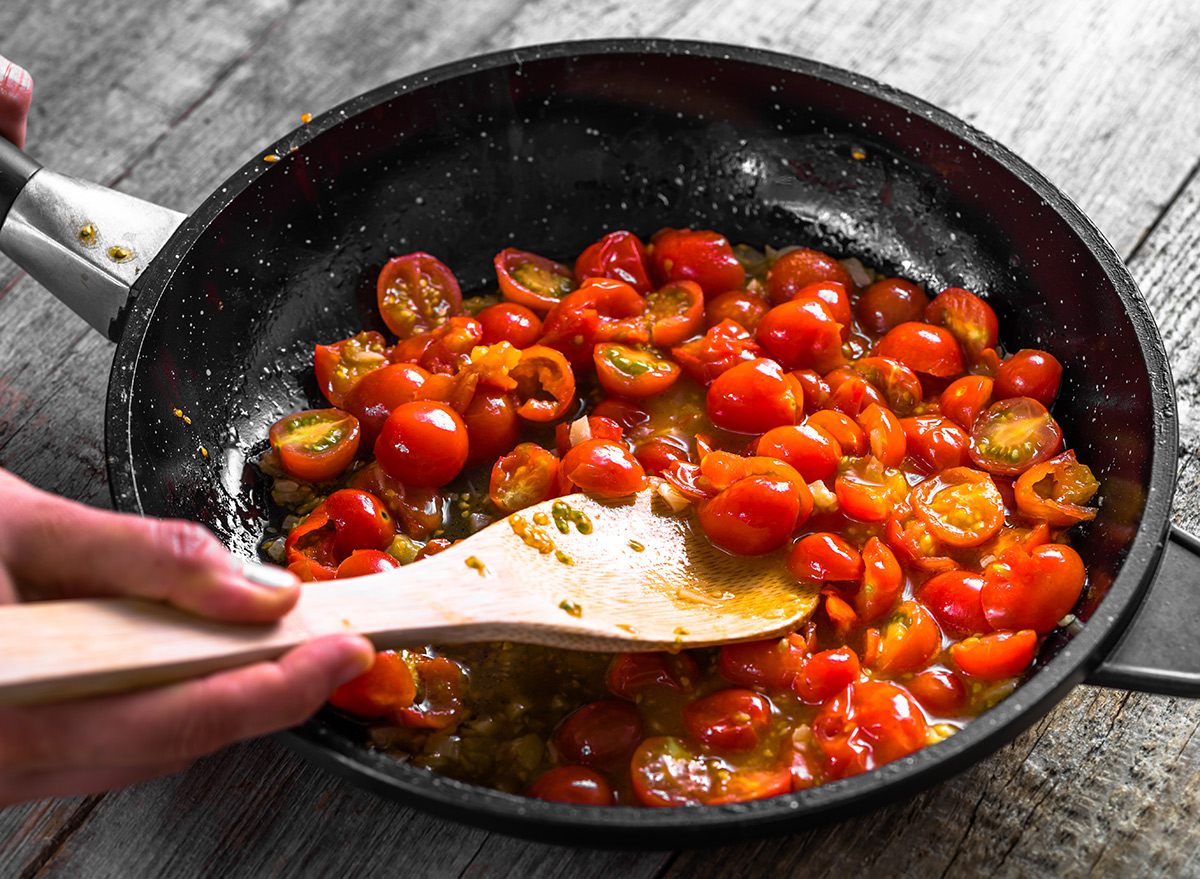
The salad staple might make for a delicious Caprese, but buying organic tomatoes will ensure you’re getting the most benefits.
Celery
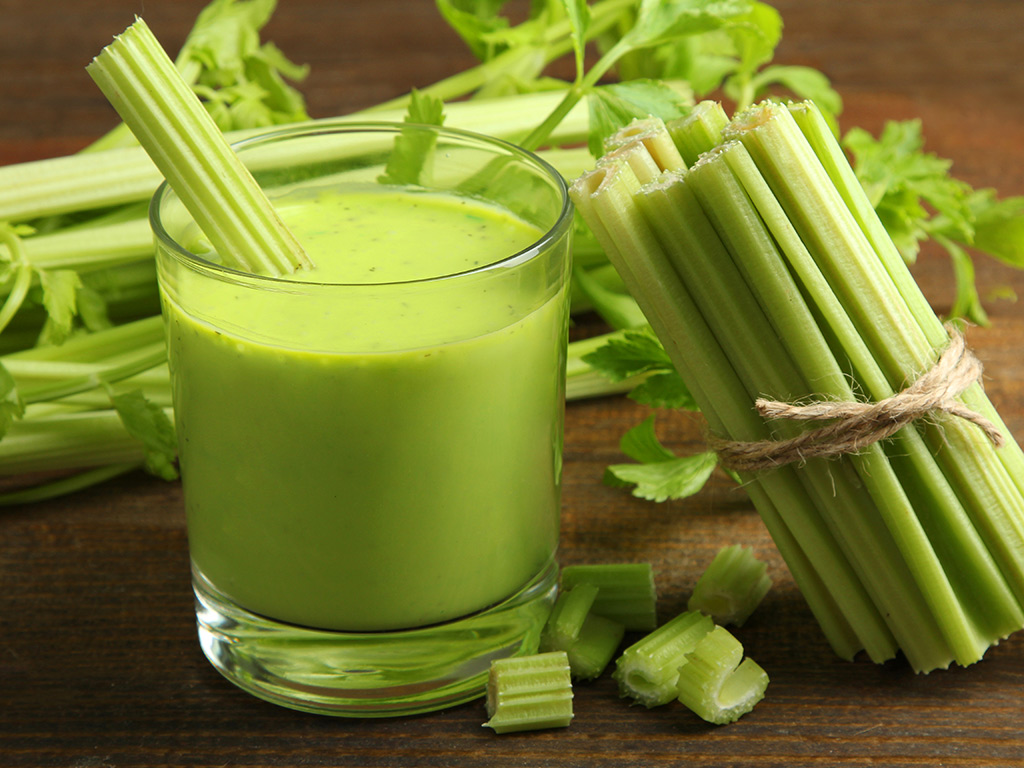
If you’re trying to get your kids to eat more veggies by using celery as a vessel for peanut butter, consider going organic. “Even low levels of pesticide exposure can be harmful to children,” Dr. Philip Landrigan, a world-renowned pediatrician and epidemiologist, said in a press release. “When possible, parents and caregivers should take steps to lower children’s exposures to pesticides, while still feeding them diets rich in healthy fruits and vegetables.”
Potatoes
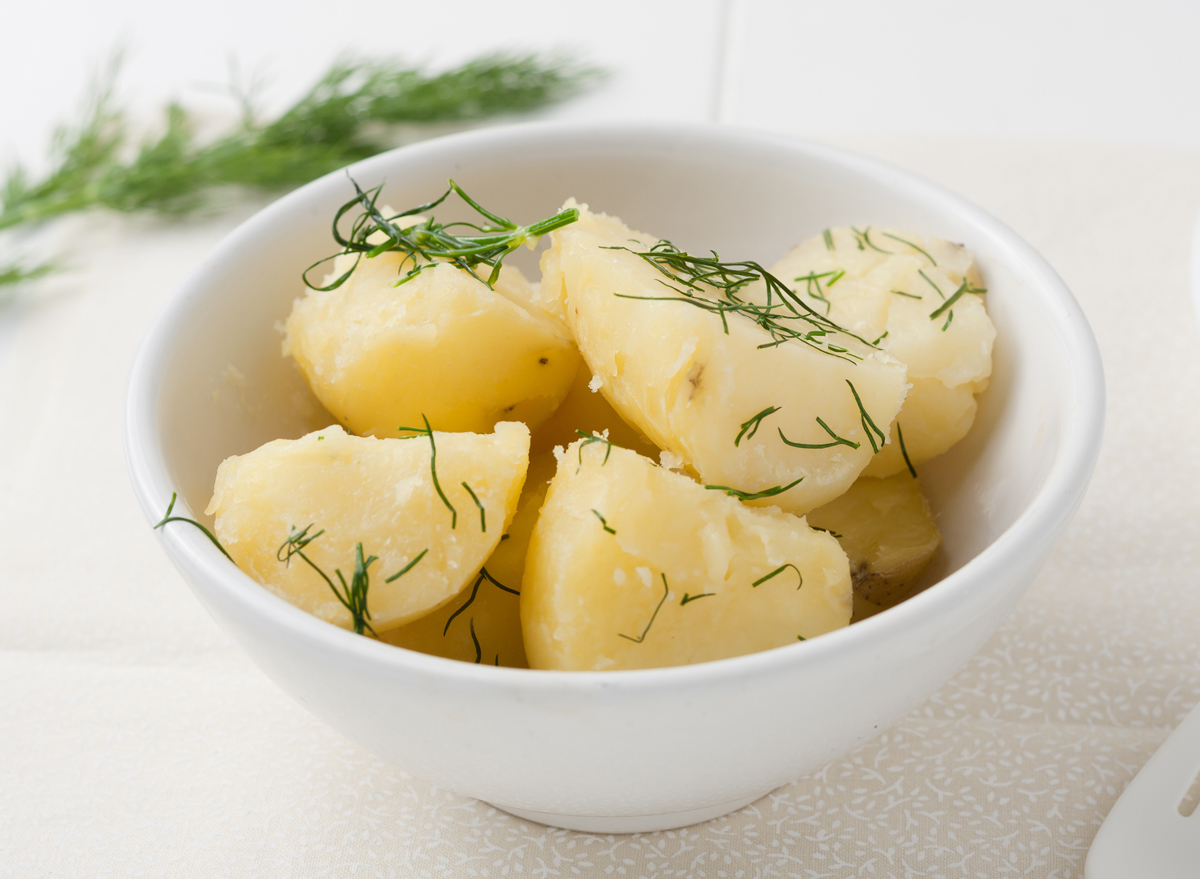
Unless you’re buying organic taters, skip the mash, or opt for whipping up mashed cauliflower as a lower-carb and less pesticide-ridden alternative.
Bonus
Hot Peppers
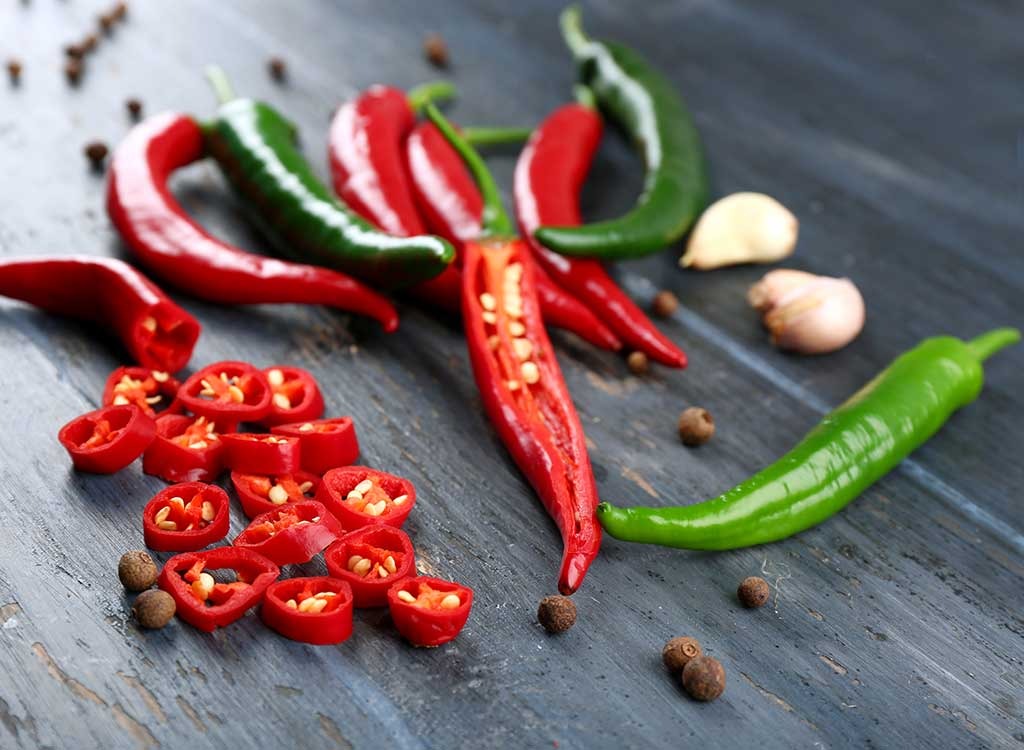
This year, the EWG also highlighted hot peppers because they were found to contain insecticides toxic to the human nervous system.